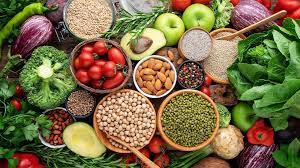Experts say changing global eating habits could help feed billions while protecting the planet by 2050. Adopting a sustainable diet worldwide may reduce environmental pressures and ensure enough food for growing populations.
Current food production contributes significantly to climate change, deforestation, and water shortages. Researchers argue that shifting diets toward plant-based foods, reducing meat consumption, and minimizing food waste can improve health and sustainability simultaneously.
A global diet shift would involve eating more fruits, vegetables, legumes, and whole grains while limiting red meat and highly processed foods. Experts note that replacing some animal products with plant-based alternatives can reduce greenhouse gas emissions and lessen the strain on natural resources.
According to studies, these dietary changes could feed an additional two to three billion people by mid-century. The approach also promises public health benefits, including lower risks of heart disease, diabetes, and certain cancers.
Environmental scientists highlight that agriculture uses nearly 40% of the world’s land and contributes about a quarter of global greenhouse gas emissions. A shift toward sustainable diets could free land for reforestation and biodiversity conservation, while also reducing water consumption and pollution.
Experts stress that policy, education, and incentives will be key to achieving global adoption. Governments, food companies, and communities must collaborate to make sustainable foods accessible, affordable, and culturally acceptable across regions.
Innovations in food technology, such as plant-based meat, lab-grown proteins, and improved crop yields, are expected to play a major role. These technologies could help meet growing food demands without expanding agricultural land or worsening climate change.
Researchers also emphasize the importance of reducing food waste, which accounts for about a third of all produced food. Efficient supply chains, better storage, and consumer education are critical to maximizing the benefits of a sustainable global diet.
The global shift toward sustainable diets is seen not only as a solution for food security but also as a necessary step to mitigate climate change. Experts say coordinated action across nations could create a future where billions are fed while protecting the planet’s resources.
Adopting sustainable diets by 2050 requires changes in personal choices, corporate responsibility, and government policies. Experts argue that the combined effect of these efforts could make food systems more resilient, equitable, and environmentally friendly.


